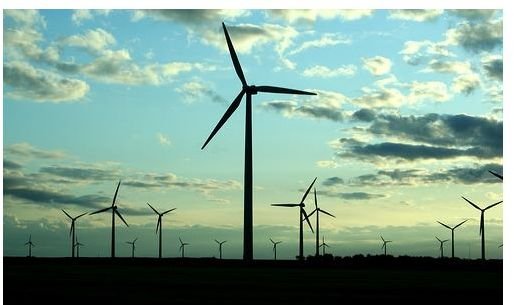What Are the Benefits of Going Green for the Economy?
Going Green
What does going green mean? Transforming to a more eco-oriented society involves so many different factors. It means the government takes action to protect the environment, to encourage green technology and growth, and to facilitate the ease of transition for businesses. It means businesses are investing in green technology, using eco-friendly energy sources as much as possible, and using more efficient methods. It means individuals are doing what they can do reduce their own carbon footprint through reduced energy use and consumption and recycling.
What are the benefits for the economy of going green? Making this transformation will result in new opportunities, more efficiency and therefore, more financial savings, and even a more productive, healthier public to work and spend money in the resulting green, sustainable economy.
New Growth
Going green means new possibilities for sustainable economic growth.
-
New technology requires innovative minds to design the technology, meaning new jobs, and new businesses to create. These new businesses and employees may be pioneers, some may fail, some may have slow growth, but there is the opportunity for many to thrive.

-
New jobs will be created in various sectors to support the new businesses. Green energy, organic agriculture, eco-friendly textiles, green building — there are so many opportunities for business growth and therefore, employment growth. More jobs equals more spending and saving, which is vital for the economy to thrive.
-
More business for supporting companies. Not only will new green businesses benefit, but all the businesses that create the products for these businesses will benefit from new customers. Also, as these companies think of create ways to supply efficient, eco-friendly products to support green business, they have even more opportunities for expansion and growth.
Efficiency Makes Financial Sense
Going green translates into efficient, streamlined practices. Much of the problem with conventional agricultural, manufacturing, and even office space practices stems from inefficiency and waste.
- Energy is wasted, paper is wasted, materials are wasted.
- Buildings are not energy-efficiency.
- Expensive chemicals are used, even when natural methods are more practical.
- Conventional farming methods are unsustainable over the long-term.
Green solutions save businesses so much money; it is only a matter of being aware of more practical, efficient methods and the development of eco-friendly methods. Here are a few examples of eco and cost-efficient changes.
- Hemp fibers are more sustainable and less expensive to grow than cotton.
- Hemp paper is more eco-friendly, sustainable, and longer lasting than paper made from wood pulp.
- Save on paper and packaging by sending documents online.
- Use more eco-friendly packaging, and less of it.
- Using only wood from sustainable forests over the long-term keeps the price of lumber under control because resources are not be depleted.
- Using less water in textile production will save on water and energy costs.
- Using fewer chemicals in the manufacturing sector saves money and reduces greenhouse gas emissions and pollution. Natural soaps for cleaning, natural dyes, or looking for natural instead of chemical solutions to problems also helps.
- Making workspaces green, with energy-efficient light bulbs, solar lighting and heating options, using recycled office supplies and recycling office supplies, cut costs and waste.
- Use indoor plants to improve indoor air quality, and cut group healthcare costs.
The Green Society
A green society will indirectly improve the economy as well.
- Workers are healthier and happier working in environments with natural light and green foliage. According to Project EverGreen, this type of workspace boosts productivity.
- As individuals live more efficiently in the home, saving money on energy and water costs, and growing their own organic garden produce to save on food costs and so forth, they have more money to spend on other products.
- With less air pollution, people inevitably breath fresher air. While this may seem to be a small issue, oxygen-rich, quality air is a foundational part of good health. A healthier public is less crippling to the health care system, and more productive.
Sustainability and efficiency are the products of eco living. The product of conventional living is stagnancy. Awareness of how practical and cost-effective these changes are is the first step in the great transformation to a greener society.
While there may be costs along the way as businesses and individuals make changes, the long-term benefits are not only incredible, but they are essential. How we live today is not sustainable. All sectors, from agriculture to energy, cannot continue as they are today. There are not enough resources and there is not enough effort by businesses to re-build and replenish what is used, polluted, and destroyed.
There are so many benefits of going green for the economy. The goal and vision of a more eco-friendly society should be shared by all, as nations, large and small businesses, and individuals are all set to thrive.
References
“Economic Benefits of Green Spaces.” (Project EverGreen) https://www.projectevergreen.com/why-green-matters/economic-benefits/
Parks, James. “Conference will Promote Benefits of Green Economy.” (AFL-CIO Now Blog) https://blog.aflcio.org/2008/02/11/conference-will-promote-benefits-of-green-economy/
Easterly, Julian. “Green Technology: Plausible or Erroneous.” (Earth Portal) https://www.earthportal.org/?p=1791
photo by: high tiger (CC/flickr) https://www.flickr.com/photos/higetiger/2759105631/sizes/m/in/photostream/
photo by: Peter Palander (CC/flickr) https://www.flickr.com/photos/palander/493589585/sizes/m/in/photostream/
